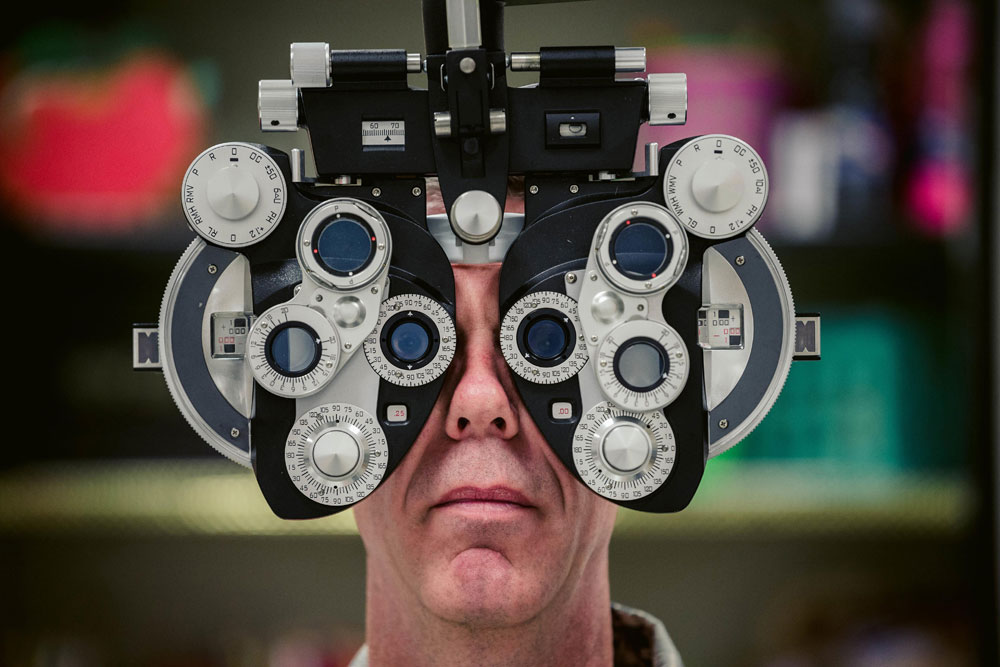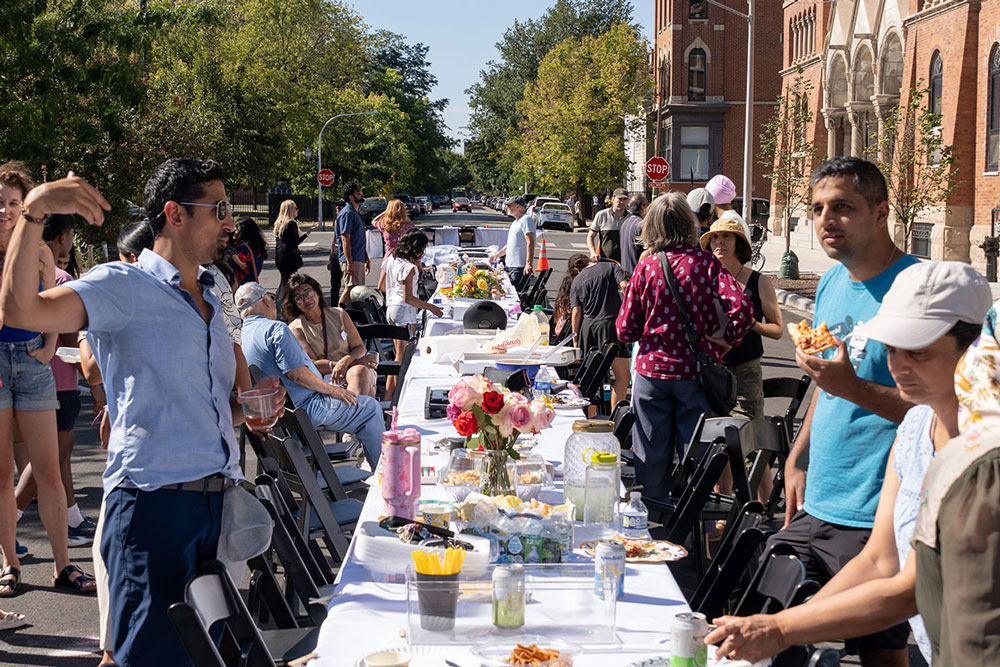
Farhan Samanani is an anthropologist, which he describes as being “a very colonial discipline that was about going off and studying all the funny colored folk so you know how to govern them better.” But, as a researcher at the Max Planck Institute, he is stationed in London, where he studies white people, which he says is akin to “flipping it kind of backwards from the place they’re all being sent out from.”
He observes that, in Britain, systems are set up to deflect from power relations founded on coloniality. These reactions of power were systemized in the 18th century such that, for example, the justice system is racist, yet it is difficult to have a conversation about it at the system level. In fact, the system is designed for exactly that.
I reached out to Samanani in the course of developing the foundational framework for Edge Leadership, an emerging social change platform. I identified five characteristics of edge leadership, the first one being personal sovereignty, which happens to be embedded in much of Samanani’s work on collective sovereignty. This is not the personal sovereignty for which Americans are known—“I can do whatever I want”—or the sovereignty movement seeking to free itself of government oversight and taxes, but one that is the basis for liberatory power.
Samanani has spent the last few years with community organizers in London and, while sovereignty is never at the center of what he does, “it always pops up and weaves through.” He has noticed that in observing excluded, underserved communities that need to build things for themselves, or define things for themselves, or find their own ways of supporting one another, there is a turning inward. He explains, “You’ve got to kind of hunker down in the group and say, ‘Who are we?’ ‘What do we have in common?’ ‘Why do we care about one another?’”
He notes a UK study that finds that people have 14 hours of spare time a week after childcare, work, and other responsibilities. “Which is not a lot,” he says. “And for a lot of people, that’s leisure time. So, how do you build the kind of connections and motivation that’s strong enough to put a claim on some of those 14 hours? And that’s a very intensive process. It relies on strong relationships. It relies often on a very strong sense of identity.”
In other words, having a strong frame, or hard boundaries of belonging, is what allows for intense connections and commitments to develop. And, at the same time, he finds that “the stronger the frame, the more people you end up leaving out in one way or another.”
For example, in 2014-2015, Samanani was living on one of the poorer council estates in London, working with local community groups there. There was one based in a building with various local baby groups, and so it was largely parents of young preschool children who showed up for the café. It wasn’t long before the café became defined as a mothers’ space.
Samanani recalls beginning to wonder if he should be there, “People made jokes like what’s this guy doing here, you know, poking fun at me because I was sort of out of place. But also, whenever other people, like dads, showed up who were trying to do the progressive co-parenting thing, they would get the piss taken out of them a little bit. Like, ‘Hey, man, you’re out of place.’” Men became an incongruous presence.
But, he adds, even though the mothers were “aggressively self-gendering the space,” this also allowed them to have the space to “rethink what that gendered term actually meant.” Samanani continued to visit the group regularly.
In the year I was regularly visiting this very feminized space, there were a lot of really intense debates and really meaningful conversations: What does it actually mean to be a mother? What does it actually mean to be a woman? How do you navigate different cultural expectations around family and parenthood? A lot of people were challenging and upending a lot of standard gender norms in different ways—saying things like, “I’m from Germany and my husband’s from the Congo. And both our parents gave us this very kind of traditional sense of what the man does and what the woman does. But actually, I want to go back to work. And how do I fold this into my sense of motherhood without feeling like I’m a bad mother myself, but also how do I get my husband to listen?”
As the women delved deeper into the frame of motherhood, they found they had a deep form of experience in common that not everybody shared. But then that actually becomes the basis for rethinking that experience.
Samanani says, “You draw the strong line around it and then you can play with it on the inside because it’s a space of trust, a space of care. But it also presumes that’s a space of understanding.”
So, the fact that everyone shared an identity is what allowed them to rethink that identity.
But, Samanani finds that groups that become very good at doing things on their own terms are often not legible to the outside world. The groups he followed that were really good at local justice work—building strong, complex forms of connection—were not only struggling to attract people who weren’t part of the collective self-formation process, they were struggling to get recognized by funders.
He explains,
Sign up for our free newsletters
Subscribe to NPQ's newsletters to have our top stories delivered directly to your inbox.
By signing up, you agree to our privacy policy and terms of use, and to receive messages from NPQ and our partners.
So, if now from the outside, your group just looks like a mothers’ group, or looks like an immigrant parents’ group, or looks like this or looks like that, anybody who doesn’t fit that rubric looks at that and goes, I’m not sure what’s in it for me. But also, if you’re talking to a funder, it looks parochial. Here’s things I literally heard: “What do you mean, you’re just running a fitness club for black boys aged 14 to 16?” Or, “What do you mean you’re running a seniors’ group? Like for a dozen seniors who are specifically Caribbean or British and migrated at this time? That’s limited. That’s not transformative.” That’s the criticism these guys would get. But it was super transformative for the people within that and kind of illegible from the outside, basically.
It’s a tricky thing. Those spaces are so vital because one of the biggest issues is that the language to figure these things out doesn’t really exist in the mainstream conversations that we have. In some ways, that’s because the bulk of the work our language does is implicit. We can say “mother,” or “Black person,” but these identity categories are not self-defining. They become defined by their dominant usage. So “mother” means breastfeeding. Maybe it means heterosexual relationships, more prominently. These are all common associations. And if you want to get away from them, you need a space where you can get different associations to stick. But, the more you do that, the more that looks illegible to everybody else.
Samanani concludes, “The real challenging move is, then, how do you move from within those spaces and turn that back on to structures of power, outside participants? How do you build broader movements from those spaces?
He notes that while there is much talk of diversity these days, the diversity that is the real threat is not about skin color or nationality, but about meaning making.
If you look at the formal system of politics, in the UK before an election, each party will release its manifesto and loads of work and campaigning and horse trading goes into developing that manifesto. But then once that manifesto is together, that’s the platform. Are you Labor or are you not? Do you sign up to that platform, or are you in [a] different party? It’s pretty binary. In the US, something similar happens in a way. It doesn’t matter if you don’t like the candidate; you are a Democrat, you better rally behind. That’s it. And a lot of politics is about trying to find consensus in a way that is about creating similarity. Or at least giving diversity a sort of second order importance to similarity. Yeah, you can disagree in a Democratic Party, but you can’t upset our power, right? You’ve got to get us to the table first.
So what these community organizers are trying to do—with varying success, I’ve got to admit, I don’t want to romanticize it—is actually, “Can we work with people who have very fundamentally different understandings of what the problem is, what the stakes are, why you should care about it, what you’re willing to do about it, and still actually find those elements that can exist in common or be translated without too much noise or static, and organize around that in a way that where we have this really broad coalition.”
Visibility counts for a lot in civil society. Nevertheless, Samanani was surprised when being counted in the Census emerged as a key goal in another community organizing group. Latin Americans aren’t recognized on the British census because they’re considered too small a minority. They’re considered a linguistic group.
The Latin American community in London is led by “really sharp, predominantly female leaders who’ve coalesced around the issue of census recognition,” he says. “All these women who do very different forms of community work—and actually their political priorities are kind of otherwise all over the map—coalesce very ferociously around the idea that ‘we need to be counted, we need to be recognized.’”
The group got pushback from the community organizer, who did not think the group could build popular support for such a campaign. But these leaders were saying they couldn’t work on any other issues if they didn’t know their community. The migrant organizations that organize these communities only account for Latin Americans as a plural coalition, never on their own terms.
Samanani says, “These Latin American organizations are considered too niche. The community is not seen as a significant group and it gets sidelined. So there’s this really fraught but interesting thing about who gets to be legible and recognized.”
Political scientist James C. Scott wrote extensively about legibility as a source of state power, but he wrote about it from the perspective of the state. State power relied on its ability to “make the human and physical landscape legible.” These practices were elaborated during colonialism. “In the case of colonial rule, when the conquerors speak an entirely different language, the unintelligibility of the vernacular landscape is a nearly insurmountable obstacle to effective rule. Renaming much of the landscape therefore is an essential step of imperial rule.” For Scott, political struggle showed up as “the conquest of illegibility,” on the other end of which were the governed who sought to remain illegible.
But, Samanani finds that not all legibility is bad. He explains,
I think anthropologists get romantic about this stuff. They think, okay, well, so often in history, you know, minority groups and excluded groups have had forms of legibility sort of imposed upon them as ways of governing and controlling. And therefore, all forms of legibility must be bad. Whereas actually, you look at a lot of these community organizations and people who sort of get left out of systems, and it’s both because they don’t have spaces beyond those dominant forms of legibility to define things for themselves, and because they can’t create their own forms of legibility and win recognition from people beyond those groups. People want a seat at the table and they want a slice of the money.
And, Samanani warns, “This is tricky. We see this language around self-determination in the European radical right as well. They’ve picked up on this kind of weird, twisted version of multiculturalism that goes like, ‘We’re actually not racist. We think all cultures are equal. They’re rich. They just don’t line up with one another. So we’ve got to keep them separated.’”
Legibility is hard work that requires both the internal work of imagining/reimagining and the external work of relatively easy translation. Groups that are good at this stand a greater chance of success. The next phase of social change may even require it.












